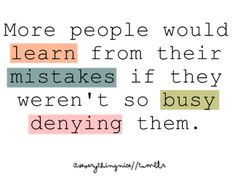Accountability and the choices they make is a big lesson for kids to learn!
The role a parent plays in the lives of a child is to nurture them and provide opportunities for them to learn and explore themselves. As a child’s educator, guide, authority and counselor we can provide much for them. When they are young it feels like we are making most if not all of the choices for them. As they begin to grow though they are making choices about many parts of their life. By the time they are off to school the choices they make are now having an effect on them.
I believe this was one of the biggest revelations in my parenting life about children, choices, and control. As a first time parent, I thought I could control a lot of the end outcomes of my children. Even when my youngest was born I still thought I could make him into what I thought he should be. I tried my hardest to get him interested in sports and other areas of life that were of interest to me. All he wanted to do was read, watch movies and a few other creative activities. I did not get it, understand or particularly even like.
But I finally got the lesson. My job was to give him opportunities to explore, but in the end, it was his choice. While keeping commitments, following through and finishing started tasks were all lessons that I helped him to learn, I had a lot less to do with his personality, likes and dislikes, and who he was growing into being as a young adult. The reason I tell this story is that many of us parents figure out at a point in our parenting career that everything a child does is a choice they are making.
Even when they are younger they choose to go along with our request for their own reasons. It may be so they do not to get into trouble, or because they want something later on. But they make a choice. When we the parents learn to allow them to make choices after we educate them in the consequences of their choice we are doing two things:
- We are teaching them how to make choices
- We are teaching them to deal with the consequences.
So how do we do this when they are young? There was a young boy in my martial arts school one time who was about 5 years old. His mother came in a big hurry, flustered because she felt the need to go back to her son’s school and get his homework that he had forgotten to put in his backpack. What she was not thinking about was the lesson this was teaching the young boy. He was learning that if he made a mistake that mom or dad would swoop in and fix it for him.
Now really at the age of five one homework paper is not going to ruin his career later in life. But if he does not learn to be accountable for his responsibilities that could follow him for a very long time in life. It is hard as a parent to see your child not get what they want. But the actual consequence in this situation is less dramatic than years from now when trouble or mistakes are made and mom or dad is not there to fix them. Accountability in small things when they are young help them to grow into responsible men and women, accountable for themselves.


